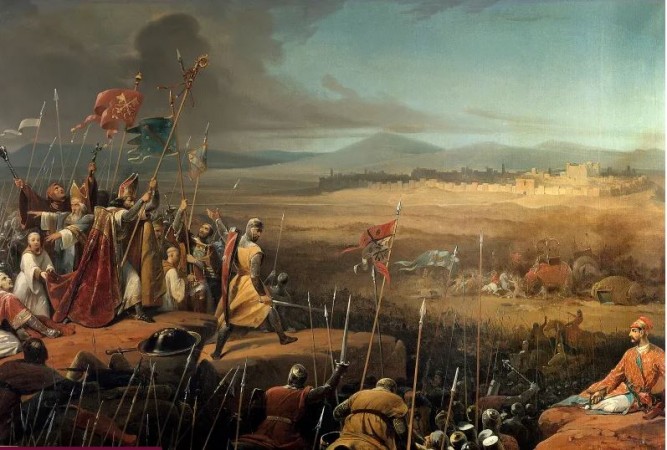
The Crusades, a series of religious wars between Christians and Muslims, represent a pivotal and complex chapter in history. Spanning from 1096 to 1291, these eight major Crusade expeditions aimed to secure control of holy sites considered sacred by both groups, with the Holy Land in the Middle East at the heart of the conflict. These costly, violent, and often ruthless conflicts significantly elevated the status of European Christians, turning them into major players in the fight for land in the Middle East.
What Were the Crusades?
As the 11th century drew to a close, Western Europe had emerged as a notable power. Yet, it still lagged behind other Mediterranean civilizations, like the Byzantine Empire and the Islamic Empire, which had once been the eastern half of the Roman Empire. The Byzantine Empire had lost considerable territory to the Seljuk Turks, leading to a plea for Western help.
When Were the Crusades?
In November 1095, at the Council of Clermont in France, Pope Urban II issued a call to Western Christians to take up arms and aid the Byzantines in reclaiming the Holy Land. This call marked the beginning of the Crusades. Those who joined this armed pilgrimage wore a cross as a symbol of the Church. The Crusades paved the way for religious knightly military orders like the Knights Templar, the Teutonic Knights, and the Hospitallers, which defended the Holy Land and protected Christian pilgrims.
The First Crusade (1096-1099)
The First Crusade witnessed four armies of Crusaders led by prominent figures such as Raymond of Saint-Gilles, Godfrey of Bouillon, Hugh of Vermandois, and Bohemond of Taranto, along with his nephew Tancred. A less organized group, known as the "People's Crusade," under Peter the Hermit, set out earlier. When the Crusaders reached Constantinople, Emperor Alexius I insisted on their oath of loyalty to him. Despite internal struggles, they captured Nicaea and eventually Jerusalem, but the victory was marred by a brutal massacre.
The Second Crusade (1147-1149)
The success of the First Crusade led to the establishment of Crusader states in the region. However, when Muslim forces began to gain ground, a call for the Second Crusade emerged. Led by Louis VII of France and Conrad III of Germany, it resulted in defeat. The loss of Edessa shocked Europe and marked the beginning of the Second Crusade, which ended in disappointment after the defeat of King Conrad at Dorylaeum and a failed campaign to capture Damascus.
The Third Crusade (1187-1192)
In response to Muslim victories, the Third Crusade was launched, led by King Richard I of England, King Philip II of France, and Emperor Frederick Barbarossa. The Third Crusade saw several battles, including the Battle of Arsuf, but ended with a peace treaty, reestablishing the Kingdom of Jerusalem without the city of Jerusalem itself.
The Fourth Crusade (1202-1204)
The Fourth Crusade deviated from its goal due to power struggles and ended with the devastating Fall of Constantinople. Crusaders sought to overthrow the Byzantine emperor in favor of his nephew, leading to the city's sacking.
Final Crusades (1208-1271)
The 13th century witnessed various Crusades, including the Albigensian Crusade, the Baltic Crusades, and the ill-fated Children's Crusade. A series of military campaigns aimed to combat perceived enemies of the Christian faith.
The Last Crusade
The fall of Acre in 1291 marked the end of the Crusader States and the Crusades. While the Church organized minor Crusades afterward, their significance dwindled as the Reformation and the decline of papal authority took hold in the 16th century.
Impact of the Crusades
The Crusades expanded the reach of Christianity and Western civilization, benefiting the Roman Catholic Church and enhancing the power of the Pope. They also improved trade and transportation across Europe.
However, among Muslims, the Crusaders were seen as ruthless and brutal, resulting in long-lasting resentment. Even today, some refer to Western involvement in the Middle East as a "crusade." The Crusades undoubtedly left an enduring impact on the Middle East and Western Europe, shaping political and cultural perspectives that persist today.
Inhabitants of Jerusalem: The Canaanites, Jebusites, and Israelites
Israel-Hamas Updates: US, UK Call on Israel to Postpone Possible Gaza Ground Operation
Biden Attributes Hamas Assault on Israel to Disrupt Israel-Saudi Diplomatic Progress